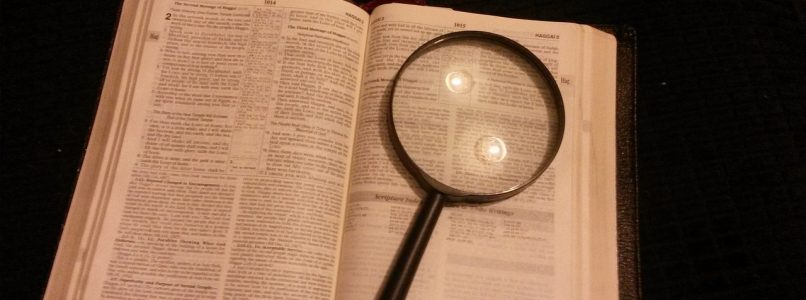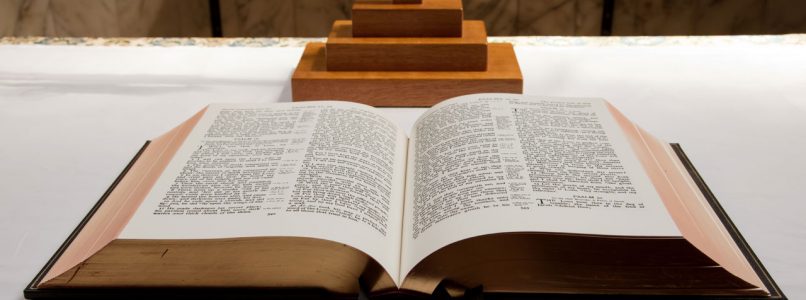The phrase sola scriptura literally means from scripture alone.
Specifically, sola scriptura is a doctrine which holds that the Christian Scriptures are the sole infallible rule of faith and practice. This is a touch more specific than I got with my zeroth axiom (which just states that scripture can be used to establish doctrine).
Sola scriptura is a formal principle of many Protestant denominations. It has been assumed in almost all that I have encountered. Charismatic churches seem to preach some variation of it.
Sola scriptura sits very happily with doctrines that ascribe infallibility to scripture. It is not the same as prima scriptura – which is that the scriptures come first and above all else.
Sola scriptura was a foundational doctrinal principle of the Reformation held by the Reformers. The reformers taught that authentication of Scripture is governed by the discernible excellence of the text as well as the personal witness of the Holy Spirit to the heart of each man.
Sola scriptura and the Axioms of Faith.
As far as the axioms that I have published so far go, both sola scriptura and prima scriptura are compatible with the axioms. Axiom Zero assumes that one of the two is true.
Criticisms of sola scriptura
I don’t intend to get into one right now but I thought I would list some of the objections to sola scriptura.
Please correct me if I get any of these wrong.
One argument is that if scripture is seen as the only source of infallible teaching, its interpretation is subject to fallible interpretation. Generally, these arguments go on to state the need for an infallible interpreter in order to reach a certainty of Christian belief.
Sola scriptura can be argued to be self-referentially incoherent. The Bible itself does not specifically seem to teach sola scriptura. Therefore, the belief that the Scriptures are the only source of Christian belief is self-contradicting because it cannot be supported without extra-scriptural doctrine. (I hope I’ve presented that clearly enough).
Sola scriptura is not so different to the teachings of the Sadducees that held only to the written law and not the oral traditions. I’m not sure what sort of objection that is but I thought I would mention it. You might want to look at Karaite Judaism if this interests you as Karaite Judaism holds the Tanakh alone as its supreme authority in Halakha (Jewish religious law) and theology. I don’t know enough to say if Karaite Judaism and the Sadducees are the similar (or not).
I read about a writer called Dave Armstrong. Armstrong apparently made the point that, since Jesus and the Apostles acknowledge authoritative Jewish oral tradition, Christians cannot dispute oral tradition’s legitimacy and authority. However, as found in Scripture, Jesus also challenges some Jewish oral tradition. Therefore, Christians can dispute some of that tradition’s authority since they hold that Jesus’ authority is greater. The conclusion of total infallibility is therefore brought into question.
How I intend to use the phrase “sola scriptura”.
I’ve not really thought about using it but I think I might write about the differences between sola scriptura and prima scriptura and try to come down one way or the other. It is a big can of worms, as evidenced by the arguments against it. I might leave that topic for a while.



 Since learning of this, I have grown uncomfortable with the way we use words drawn from Biblical texts. Historic Christianity has already made itself a by-word for the oppression of the Jewish people. Why should we compound this with careless speech and wording?
Since learning of this, I have grown uncomfortable with the way we use words drawn from Biblical texts. Historic Christianity has already made itself a by-word for the oppression of the Jewish people. Why should we compound this with careless speech and wording?



